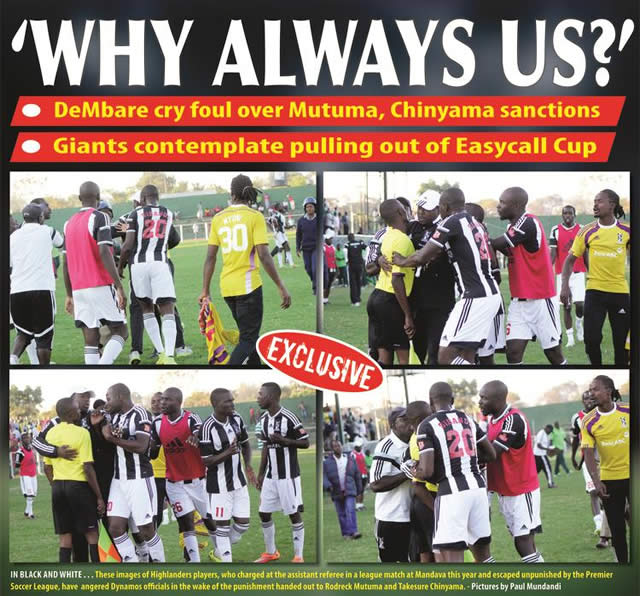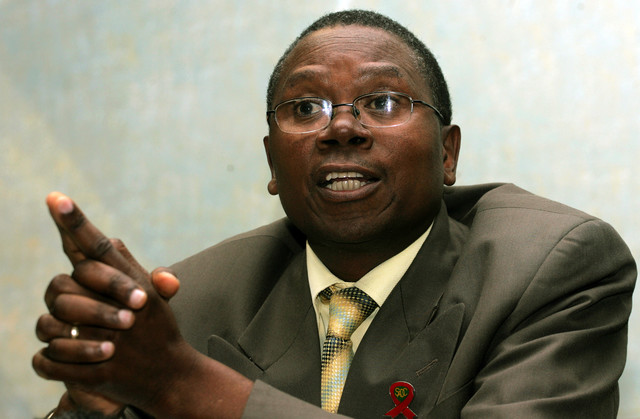A visit to South Africa
Dr Sekai Nzenza on Wednesday
On the plane, Piri sits quietly in the window seat. Her excitement is beyond bounds. She is not speaking but is twiddling her fingers and taking short breaths. I let her be. We are going to South Africa. Piri has a new passport, the first one she has ever got. It has been stamped just once, as we were leaving immigration in Harare. We are Zimbabweans, so we do not need a visa to South Africa. We are going to visit our cousin Mainini Erica and her husband Richard, who are among more than one million Zimbabweans living in South Africa.
Zimbabweans work in every sector of the South African economy, from mines, factories, wineries, farms, gardens, restaurants, law firms, hospitals and universities. Many have made South Africa home. Some have forgotten that once, they lived in the village, back here in Zimbabwe. Forgetting too, that the people they left behind miss them. But then these days, you must follow the trail that leads to work and a better lifestyle.
As the plane speeds along the runway and takes off, Piri remains unmoved for a while, looking through the window. Suddenly, she says: “Honai Sis, Chitungwiza, ah, Hunyani, honai, mota, honai!” I tell her to keep her voice down, conscious that other seasoned travellers might be listening to us.
We are given a beef sandwich but Piri is not interested in eating anything. I ask for a beer on her behalf and she takes it down slowly. An hour and 20 minutes later, we start our descent into Johannesburg. As we walk to the immigration desks, Piri says: “The people are like ants, moving so fast in one direction.”
After collecting our suitcases, we go to the train. Sitting on the train, Piri takes a deep breath and says: “Ah, Sis, kuti isu tichasiya makombi tigosvikawo ipapa pakufamba?” (Are we ever going to leave the kombis and get to this level when we travel?)
I nod and tell her that all countries start from somewhere and they develop at a different pace. But I hide my doubts because I do not think this will happen when I am still alive. Perhaps later. But we must have hope.
I remind Piri that there were days when our grandparents left Southern Rhodesia to work in Johannesburg, kuJonhi, as they called it. They walked, travelled on buses and on trains to get to South Africa. Those who walked slept in the jungle, making a fire at night to scare away lions.
In Johannesburg they endured the apartheid system and came back home with very little. Some never returned. Others went to Fort Hare and studied for big degrees. Now, the grandchildren of the first Zimbabweans to South Africa are also coming here to study.
In Johannesburg, we stayed with my cousin, Mainini Erica. We are related on my mother’s side. She is an accountant and her husband Rich, is an engineer from Zambia. After 20 years living here, the couple are what you could call comfortable.
They live in a gated community where you need a pass to visit them. Their house has six bedrooms and four bathrooms. In the garage are four cars, including a Mercedes-Benz and another 4WD. They have three children, two at university and the youngest boy is in a private boarding school somewhere outside Johannesburg. Once or twice a year, they travel overseas on holidays and visit Zimbabwe at Christmas.
Since their Zimbabwean maid was away, to do the cooking and washing of dishes, Mainini Erica said we could all have a variety of takeaway food to choose from. Food was ordered on the phone from different shops. One by one, the deliveries of various foods arrived. There was fried chicken, bar-b-que ribs, Chinese duck, and Indian curry with roti bread, fish and chips and pizza.
Confronted with such varieties of food, Piri said: “South Africa is heaven.” But Rich and Erica quickly corrected her, saying life was not easy for most Zimbabweans. But Piri was half listening, enjoying a big can of Castle and eating big barbecue ribs with her eyes were focused on the TV series called “Generations”.
“We have the same show in Zimbabwe. Everyone in the movie is beautiful, even the old ladies. I think I can live here,” she said, reaching for another rib that was smothered in red sauce. “They exaggerate about South Africans not liking other people from Africa.”
The following day we went shopping in Sandton. Mainini Erica drove us in her brand new Mercedes. Piri paused for photos in front of Nelson Mandela’s statue at Nelson Mandela Square. Soon as we entered the mall, she asked for money to buy a shorter jean skirt so she could show off her thick brown legs a bit more, since the women walking around the mall had shorter skirts and were proudly swinging their bottoms.
Piri also put some bright red lipstick on. “Ndabvuma, South Africa has money and beautiful full people,” she said, admiring people walking around the mall. “People lie when they say life is bad in South Africa.”
Erica told Piri that Sandton was not the real South Africa. What Piri was seeing in Sandton was very similar to an upmarket New York or London shopping centre where most people with money walk around, shop, have dinner and enter into bookshops to read or spend time in a coffee shop meeting and chatting with friends.
Outside Sandton, there was another world, where poor people, both South Africans and other migrants and refugees from Africa, struggle to make a living.
But Piri did not believe anything Erica said. Piri stopped and pointed to a coffee shop a few steps below and pulled my arm: “Look, this place is just like what you see on television. See, down in that shop, the only people drinking coffee and eating cakes are white people. On television, you see white people too serving other white people. But here, it’s the black people serving the white people. I have never seen so many white people in one place except on television. ” She stood there staring below. Erica then said: “And most of those people you see in there serving as waiters and waitress are from Zimbabwe.”
“But you lie,” said Piri. To prove the point, we walked down the stairs into the café and were allocated a table by a young friendly guy dressed in a white shirt and blue jeans. “Table for three?” he asked, smiling. Then he gave us the menu and left us for a few minutes.
When he came back, Erica said: “Tirikuda two cappuccinos and one Coke.” The guy immediately replied in Shona and in a brief moment, he told us that he was an electrician, he came from Guruve, up in the north of Zimbabwe and he has been in South Africa for four years.
His wife works as a receptionist in Sandton and they have two children being cared for by his mother in Harare. Before the rand dropped, they used to send money very often to the family, but lately, they have struggled to make enough to pay for the children’s school fees and for the rent in Warren Park where his parents live with other younger siblings and relatives.
“Are you coming home for Christmas?” Piri asked. Richard smiled and said, he was. Piri then asked if his wife was coming along as well. Richard said no, she was not coming because they take turns to come home. “We should catch up when you come over. We can all go to Mereki and roast meat together. Do you have a car?” Richard said he did and Piri smiled even more and asked for Richard’s phone number.
We reminded Piri that Richard was married and there was no need to give him one of her usual flirtatious smile. “There will be no harm in welcoming a brother back home. We can all ride in his car. How many cars with South African number plates have you seen at Mereki’s during Christmas?”
On the way home, Erica pointed to Alexandra township and said there was a lot of poverty and violence in that area and in many other towns too within South Africa. She told us many stories of people being robbed and killed at gunpoint. In another story she said the robbers climbed a fence, raped the woman and killed the husband then took away all the money and the car. Erica’s stories about violence in South Africa were many. Piri kept on saying, “Maiwee, sure?”
“Here in South Africa, you find two worlds. Some of the richest people in the world live here. Many of them are black like us. Then you find the poorest of the poor living in shacks around Honey Dew, Soweto and other only a few kilometres from the richest people. Life is like that.” Erica said.
“One day, it should get better,” I said, hoping in my own mind that a change would come when there will be less violence, less inequality and less xenophobia. I remembered the time when apartheid was the norm here. Black and white people did not mix.
During that that time, Nelson Mandela and many black South Africans were in prison for fighting the system of racial segregation. In 1976, black students in Soweto demonstrated against the forced study of Afrikaans in schools. Many were shot dead and that began a big exodus of refugees outside South Africa. Steve Biko, the founder of the Black Consciousness movement and an anti-apartheid fighter, was killed on September 12, 1977.
South Africa has a history of pain and suffering during apartheid. But, like everything else, apartheid passed. Hapana chisingaperi. After apartheid, South Africa is confronted with the problems of increasing poverty, xenophobia and many other economic and social problems. That too, hopefully, will come to pass.
Dr Sekai Nzenza is a writer and cultural critic









Comments